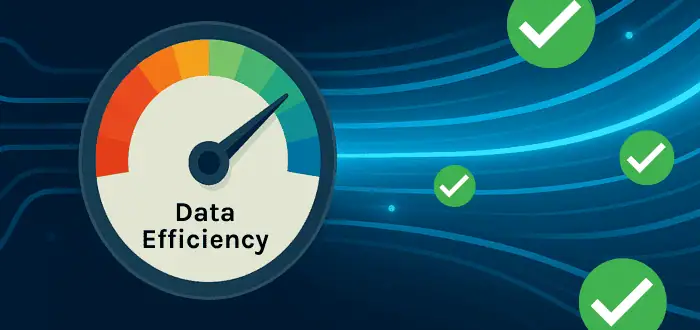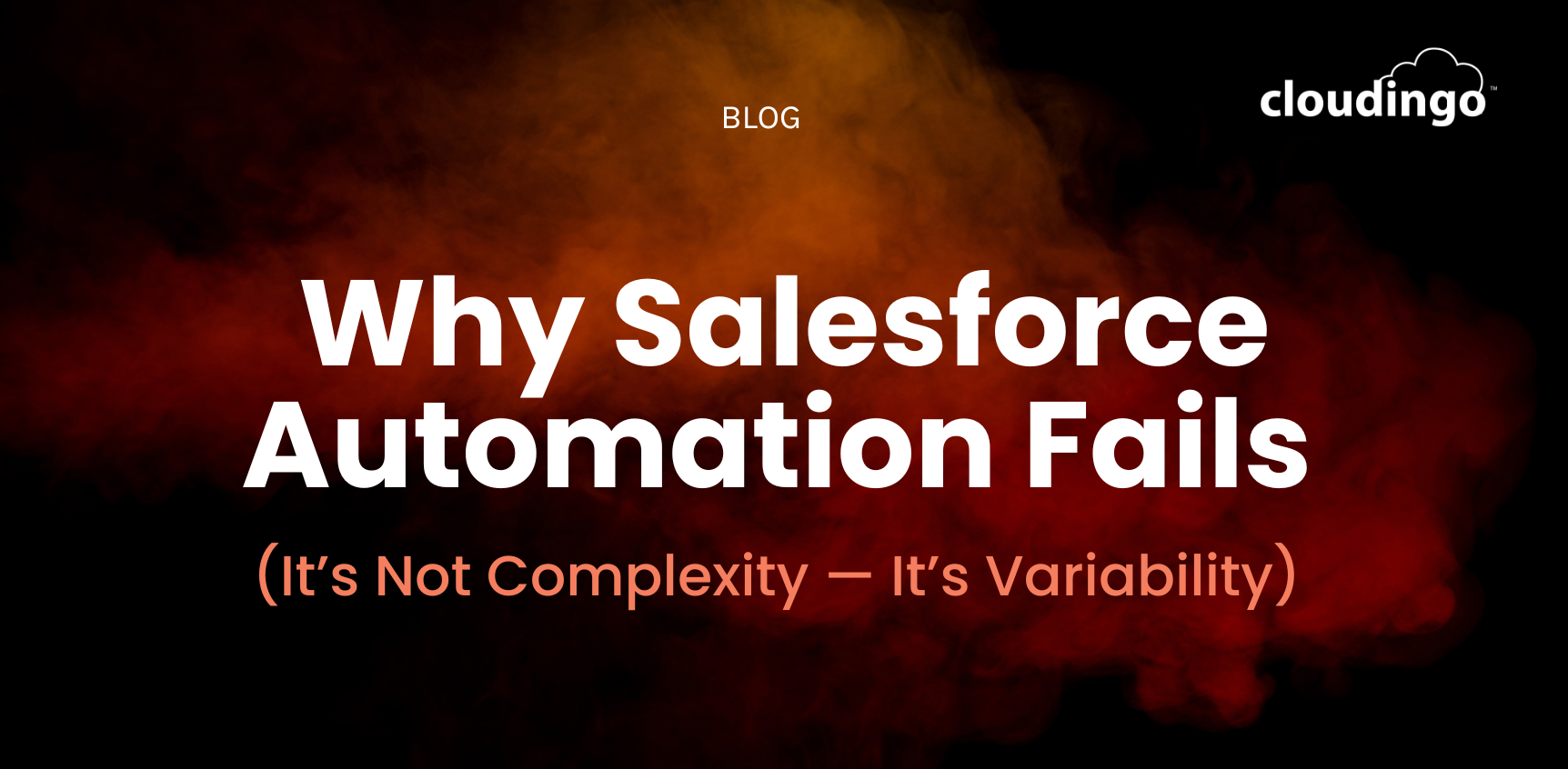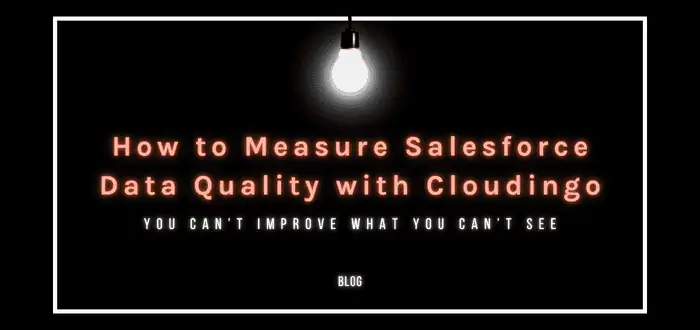April 10, 2025
Is Data Efficiency the New Bottom Line? Why It’s No Longer a “Nice-to-Have”

Data management has always been a part of business operations. However, the landscape is shifting dramatically. It's no longer sufficient to simply possess data; the focus now is on managing it efficiently. This need is particularly pronounced for teams leveraging powerful platforms like Salesforce and Marketo.
The core issue? Traditional methods of handling data, think manual cleaning, deduplication, and importing, are not just slowing teams down; they are demonstrably hindering overall performance. As data volumes continue their exponential climb, the cost of this inefficiency escalates in tandem. But at the same time, data management can’t simply be ignored.
What's Fueling the Drive Towards Efficiency?
We consistently hear from organizations grappling with data overload. Whether it's marketing teams struggling to refine lead lists or administrators burdened by escalating storage, the fundamental question remains: How can we simplify this?
Several key factors are pushing data efficiency to the forefront:
The Drag of Manual Processes:
Countless hours are wasted on the tedious task of fixing records one-by-one. This is a prevalent frustration for Salesforce and Marketo users. Manual intervention isn't just time-consuming; it introduces significant risk. The more hands involved, the greater the likelihood of errors and inconsistencies. It's no wonder that automation is becoming the go-to solution for alleviating this human workload.
The Productivity Killer: Poor Data Quality:
Duplicates, incomplete fields, and inconsistent formatting aren't just unsightly; they severely impede productivity. Sales representatives lose valuable time pursuing flawed leads. Marketing campaigns misfire, wasting resources. And ultimately, executives lose confidence in the reliability of their reporting. Clean, high-quality data isn't a superficial metric – it's a critical driver of performance. Studies indicate that organizations can lose millions annually due to inaccurate data, impacting both revenue and operational efficiency.
The Strain of Bloated Systems and Resource Drain:
More data doesn't automatically equate to better outcomes. As storage costs rise and administrative teams are stretched thin, organizations are compelled to critically evaluate what data they retain and why. The emphasis is shifting towards intelligent, actionable data that provides value, rather than data that demands constant and costly management.
The Inflexibility of Non-Scalable Systems:
What might be manageable today can quickly become a bottleneck tomorrow. Forward-thinking companies are reassessing their technology stacks and processes to ensure they can scale effectively without a proportional increase in personnel or working hours. Scheduled automation and continuous data maintenance are rapidly evolving from best practices to absolute necessities.
Is This Just a Trend? Absolutely Not. It's a Fundamental Shift.
Across diverse industries, organizations are recognizing that poor data efficiency isn't merely an inconvenience; it's a significant impediment to growth. We're observing consistent patterns:
- Increased Automation: The era of manual merges and data manipulation is drawing to a close.
- Proactive Strategies: The focus is shifting from reactive data cleaning to preventative measures that maintain data integrity from the outset.
- Heightened Urgency: Discussions around data efficiency are no longer theoretical; they are critical priorities demanding immediate attention.
- Overwhelming Data Volumes: Teams feel buried under an ever-increasing deluge of information and are actively seeking effective solutions. Experts predict the global datasphere will continue its rapid expansion, reaching an estimated 181 zettabytes by the end of 2025, emphasizing the ongoing critical need for efficient management strategies [Source: Rivery's "Big data statistics: How much data is there in the world?"].
- Leaner Operations: With tighter budgets and potentially smaller teams, efficiency is no longer optional – it's a fundamental requirement for survival and success. The trend towards automation in data management is accelerating, with a significant percentage of marketing leaders planning to increase investment in marketing automation in 2025. This reflects a broader move towards leveraging technology to streamline data processes [Source: Vena Solutions' "70 Business Automation Statistics Driving Growth in 2025"].
The Competitive Advantage: Efficiency
At Cloudingo, we are specifically designed to address these critical needs. Our platform effectively eliminates duplicates, automates data imports, and standardizes data at scale – all without the tedious manual effort. For teams striving for agility and operational leanness, Cloudingo offers an efficiency advantage that delivers tangible results.
The true return on investment of efficient data management permeates every facet of your business:
- Enhanced Productivity: Less time spent on data wrangling translates directly into more time for selling, marketing, and innovation.
- Superior Insights: Informed decisions are predicated on the accuracy and reliability of your underlying data.
- Elevated Customer Experiences: Meaningful personalization begins with precise and consistent customer data.
- Reduced Operational Costs: Optimize storage and minimize the burden on IT resources.
- Sustainable Scalability: Build your systems and processes to accommodate growth without adding unnecessary complexity or overhead.
Because in today's data-driven world, efficiency isn't just a desirable outcome – it's the new bottom line.





